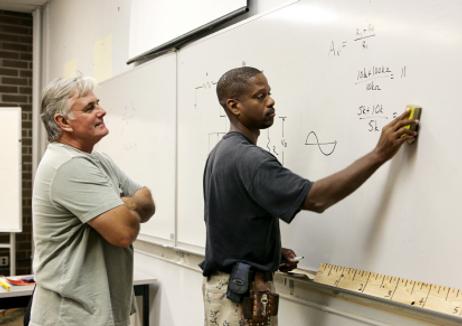Despite the high unemployment rate and sluggish economy plaguing much of the country, there are numerous industries that can’t find enough skilled workers to staff their offices. To address both of these issues, community colleges nationwide are developing training programs in fields facing staffing shortages, putting displaced workers back on the job, and filling company needs. One focus to this end is on the manufacturing industry, a field that promises long-term economic growth and job stability. Community colleges are answering the manufacturing call, with new programs cropping up at campuses coast to coast.
Manufacturing Program Expanding at Asnuntuck
Already boasting a successful manufacturing training program, Asnuntuck Community College is preparing to expand to allow even more students the opportunity to move into this lucrative field. According to the Windsor Locks Patch, the Connecticut state legislature recently passed a comprehensive jobs bill that allotted $2.2 million to the school for the purpose of growing its precision manufacturing program. The hope is that the expansion of the program will encourage long-term economic growth in the area by boosting small business opportunities.
“Small business continues to be the engine that drives our economy,” State Representative Kathleen Tallarita (D-Enfield) told the Patch. “Investing in the future of Connecticut’s small businesses is essential to our continued economic growth.”
The funding will increase the manufacturing program's student body from 200 to 350 full-time students. It will also increase the number of incumbent workers from 325 to 450. The money will allow the






















